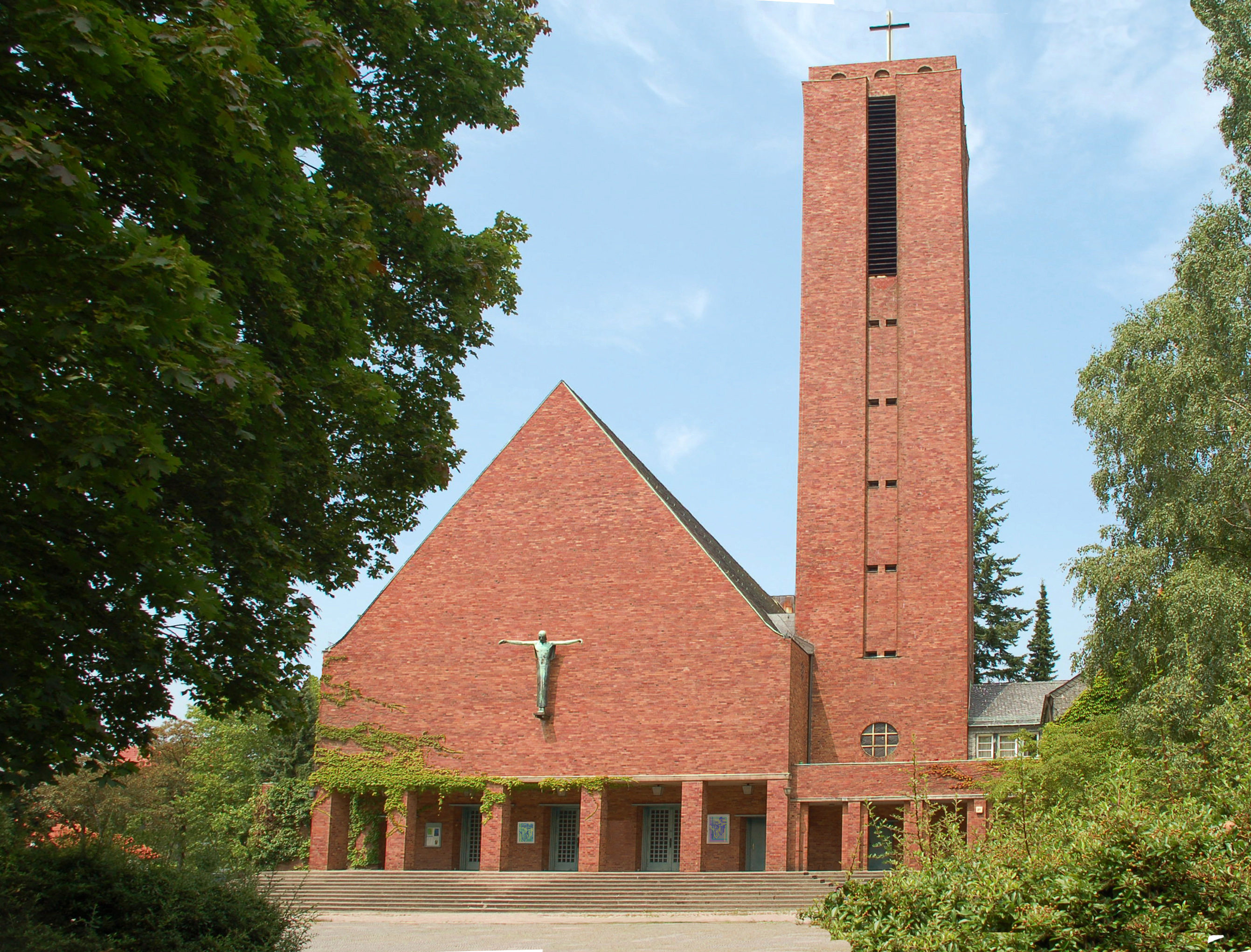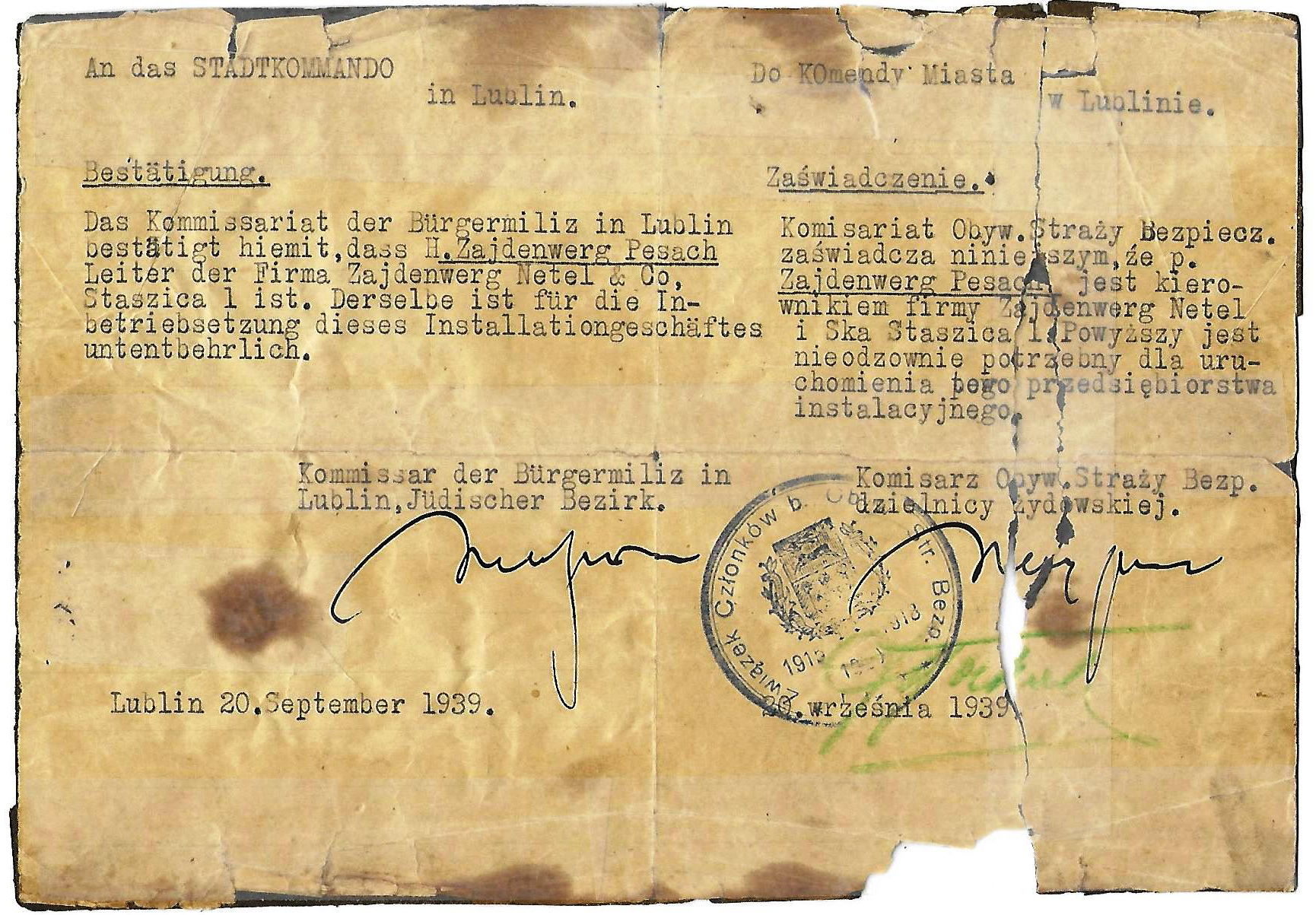|
Hildegard Schaeder
Hildegard Schaeder (13 April 1902 – 11 April 1984) was a German theologian and church historian. In her research, she focused on the history and theology of Eastern orthodox churches, with studies not only in Breslau and Hamburg but also in Prague and the Soviet Union where she lived when the Nazis came to power. In 1934, she returned to Germany, where she worked for the Prussian Privy State Archives, became a member of the Confessing Church and worked in Martin Niemöller parish in Dahlem, caring for persecuted Jews. She was imprisoned from 1943. After the liberation of Ravensbrück concentration camp, she moved to Göttingen, working at the university, and then to Frankfurt where she worked for the Protestant church in Germany (EKD) responsible for Eastern churches, and taught at the university from 1962 to 1978. In 2000, she was posthumously honoured as Righteous Among the Nations. Life Born in Kiel, Schaeder was the fourth child of the professor of systematic theology Er ... [...More Info...] [...Related Items...] OR: [Wikipedia] [Google] [Baidu] |
Kiel
Kiel () is the capital and most populous city in the northern Germany, German state of Schleswig-Holstein, with a population of 246,243 (2021). Kiel lies approximately north of Hamburg. Due to its geographic location in the southeast of the Jutland peninsula on the southwestern shore of the Baltic Sea, Kiel has become one of Germany's major maritime centres, known for a variety of international sailing events, including the annual Kiel Week, which is the biggest sailing event in the world. Kiel is also known for the Kiel mutiny, Kiel Mutiny, when sailors refused to board their vessels in protest against Germany's further participation in World War I, resulting in the abdication of the Wilhelm II, German Emperor, Kaiser and the formation of the Weimar Republic. The Olympic sailing competitions of the 1936 Summer Olympics, 1936 and the 1972 Summer Olympics#Venues, 1972 Summer Olympics were held in the Bay of Kiel. Kiel has also been one of the traditional homes of the German Nav ... [...More Info...] [...Related Items...] OR: [Wikipedia] [Google] [Baidu] |
Ravensbrück Concentration Camp
Ravensbrück () was a German concentration camp exclusively for women from 1939 to 1945, located in northern Germany, north of Berlin at a site near the village of Ravensbrück (part of Fürstenberg/Havel). The camp memorial's estimated figure of 132,000 women who were in the camp during the war includes about 48,500 from Poland, 28,000 from the Soviet Union, almost 24,000 from Germany and Austria, nearly 8,000 from France, and thousands from other countries including a few from the United Kingdom and the United States. More than 20,000 of the total were Jewish, approximately 15%. 85% were from other races and cultures. More than 80% were political prisoners. Many prisoners were employed as slave labor by Siemens & Halske. From 1942 to 1945, the Nazis undertook medical experiments to test the effectiveness of sulfonamides. In the spring of 1941, the SS established a small adjacent camp for male inmates, who built and managed the camp's gas chambers in 1944. Of some 130,000 fem ... [...More Info...] [...Related Items...] OR: [Wikipedia] [Google] [Baidu] |
Lublin Ghetto
, location = Lublin, German-occupied Poland , date = , incident_type = Imprisonment, forced labor, starvation, exile , perpetrators = , participants = , organizations = SS , camp = deportations to Belzec extermination camp and Majdanek , ghetto = , victims = 34,000 Polish Jews , survivors = , witnesses = , documentation = , memorials = The Lublin Ghetto was a World War II ghetto created by Nazi Germany in the city of Lublin on the territory of General Government in occupied Poland. The ghetto inmates were mostly Polish Jews, although a number of Roma were also brought in.Doris L. Bergen ''War & Genocide: A Concise History of the Holocaust'' Rowman & Littlefield, 2002, pg. 144. . Set up in March 1941, the Lublin Ghetto was one of the first Nazi-era ghettos slated for liquidation during the most deadly phase of the Holocaust in occupied Poland.Lawrence N. Powell, ''Troubled Memory: Anne Levy, the Holocaust, ... [...More Info...] [...Related Items...] OR: [Wikipedia] [Google] [Baidu] |
Research Assistant
A research assistant (RA) is a researcher employed, often on a temporary contract, by a university, a research institute or a privately held organization, for the purpose of assisting in academic or private research. Research assistants are not independent and are responsible to a supervisor or principal investigator and usually are not directly responsible for the outcome of the research. However, in some countries, research assistants can be the main contributor to the outcome of the research. Research assistants are often educated to degree level and might be enrolled in a postgraduate degree program and simultaneously teach, for example, if enrolled in a PhD programme they are known as Doctoral Research Assistants. Undergraduate and post-doctoral level Although a research assistant is normally appointed at graduate level, undergraduates are also sometimes appointed to support research. In Economics and Business, for instance, numerous research assistantship opportunities are a ... [...More Info...] [...Related Items...] OR: [Wikipedia] [Google] [Baidu] |
Richard G
Richard is a male given name. It originates, via Old French, from Frankish language, Old Frankish and is a Compound (linguistics), compound of the words descending from Proto-Germanic language, Proto-Germanic ''*rīk-'' 'ruler, leader, king' and ''*hardu-'' 'strong, brave, hardy', and it therefore means 'strong in rule'. Nicknames include "Richie", "Dick (nickname), Dick", "Dickon", "Dickie (name), Dickie", "Rich (given name), Rich", "Rick (given name), Rick", "Rico (name), Rico", "Ricky (given name), Ricky", and more. Richard is a common English, German and French male name. It's also used in many more languages, particularly Germanic, such as Norwegian, Danish, Swedish, Icelandic, and Dutch, as well as other languages including Irish, Scottish, Welsh and Finnish. Richard is cognate with variants of the name in other European languages, such as the Swedish "Rickard", the Catalan "Ricard" and the Italian "Riccardo", among others (see comprehensive variant list below). People ... [...More Info...] [...Related Items...] OR: [Wikipedia] [Google] [Baidu] |
Byzantine Studies
Byzantine studies is an interdisciplinary branch of the humanities that addresses the history, culture, demography, dress, religion/theology, art, literature/epigraphy, music, science, economy, coinage and politics of the Eastern Roman Empire. The discipline's founder in Germany is considered to be the philologist Hieronymus Wolf (1516–1580), a Renaissance Humanist. He gave the name "Byzantine" to the Eastern Roman Empire that continued after the Western Roman Empire collapsed in 476 AD. About 100 years after the final conquest of Constantinople by the Ottomans, Wolf began to collect, edit, and translate the writings of Byzantine philosophers.''Byzantium: Faith and Power (1261–1557)'' |
Philology
Philology () is the study of language in oral and writing, written historical sources; it is the intersection of textual criticism, literary criticism, history, and linguistics (with especially strong ties to etymology). Philology is also defined as the study of literary texts as well as oral and written records, the establishment of their authenticity and their original form, and the determination of their meaning. A person who pursues this kind of study is known as a philologist. In older usage, especially British, philology is more general, covering comparative linguistics, comparative and historical linguistics. Classical philology studies classical languages. Classical philology principally originated from the Library of Pergamum and the Library of Alexandria around the fourth century BC, continued by Greeks and Romans throughout the Roman Empire, Roman/Byzantine Empire. It was eventually resumed by European scholars of the Renaissance humanism, Renaissance, where it was s ... [...More Info...] [...Related Items...] OR: [Wikipedia] [Google] [Baidu] |
Slavic Studies
Slavic (American English) or Slavonic (British English) studies, also known as Slavistics is the academic field of area studies concerned with Slavic areas, languages, literature, history, and culture. Originally, a Slavist or Slavicist was primarily a linguist or philologist researching Slavistics. Increasingly, historians, social scientists, and other humanists who study Slavic area cultures and societies have been included in this rubric. In North America, Slavic studies is dominated by Russian studies. Ewa Thompson, a professor of Slavic studies at Rice University, described the situation of non-Russian Slavic studies as "invisible and mute." History Slavistics emerged in late 18th and early 19th century, simultaneously with Romantic nationalisim among various Slavic nations, and ideological attempts to establish a common sense of Slavic community, exemplified by the Pan-Slavist movement. Among the first scholars to use the term was Josef Dobrovský (1753–1829). The his ... [...More Info...] [...Related Items...] OR: [Wikipedia] [Google] [Baidu] |
Classical Philology
Classics or classical studies is the study of classical antiquity. In the Western world, classics traditionally refers to the study of Classical Greek and Roman literature and their related original languages, Ancient Greek and Latin. Classics also includes Greco-Roman philosophy, history, archaeology, anthropology, art, mythology and society as secondary subjects. In Western civilization, the study of the Greek and Roman classics was traditionally considered to be the foundation of the humanities, and has, therefore, traditionally been the cornerstone of a typical elite European education. Etymology The word ''classics'' is derived from the Latin adjective '' classicus'', meaning "belonging to the highest class of citizens." The word was originally used to describe the members of the Patricians, the highest class in ancient Rome. By the 2nd century AD the word was used in literary criticism to describe writers of the highest quality. For example, Aulus Gellius, in his ''Att ... [...More Info...] [...Related Items...] OR: [Wikipedia] [Google] [Baidu] |
Abitur
''Abitur'' (), often shortened colloquially to ''Abi'', is a qualification granted at the end of secondary education in Germany. It is conferred on students who pass their final exams at the end of ISCED 3, usually after twelve or thirteen years of schooling (see also, for Germany, ''Abitur'' after twelve years). In German, the term has roots in the archaic word , which in turn was derived from the Latin (future active participle of , thus "someone who is going to leave"). As a matriculation examination, ''Abitur'' can be compared to A levels, the ''Matura'' or the International Baccalaureate Diploma, which are all ranked as level 4 in the European Qualifications Framework. In Germany Overview The ("certificate of general qualification for university entrance"), often referred to as ("''Abitur'' certificate"), issued after candidates have passed their final exams and have had appropriate grades in both the last and second last school year, is the document which contains t ... [...More Info...] [...Related Items...] OR: [Wikipedia] [Google] [Baidu] |
Hans Heinrich Schaeder
Heinz Heinrich Schaeder (31 January 1896 – 13 March 1957) was a German Orientalist and Iranologist. Life Heinz Heinrich Schaeder was born in Göttingen, Germany on 31 January 1896. He was the son of theologist Erich Schaeder, brother of historian Hildegard Schaeder and cousin of theologian Günter Lüling. Raised in a strict fashion by his father, Schaeder studied classical philology at the University of Kiel since 1914. During World War, he served in the German Army. He continued his studies in classical philology at Kiel under Werner Jaeger. Under the influence of historian Fritz Kern, Lommel developed an interest in the Middle east. Completing "all his academic degrees in an incredibly short time", Schaeder gained his Ph.D. at Kiel in 1919 with a thesis on the Islamic theologian Hasan al-Basri. He completed his habilitation in 1922 with a thesis on the Persian poet Hafez. In the 1920s, German Iranian studies was dominated by Friedrich Carl Andreas and , but Schaeder be ... [...More Info...] [...Related Items...] OR: [Wikipedia] [Google] [Baidu] |







